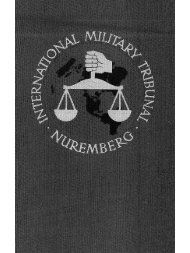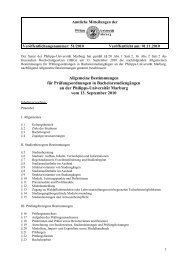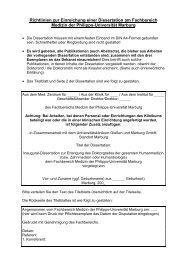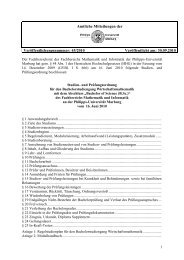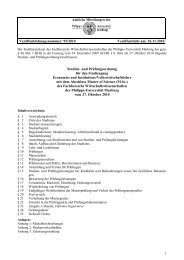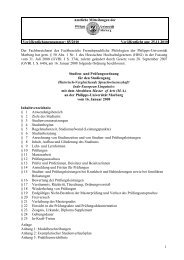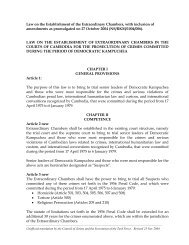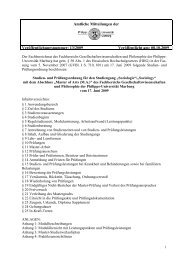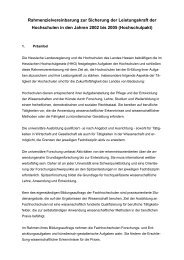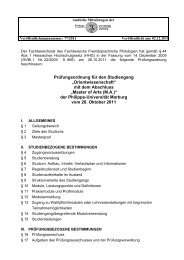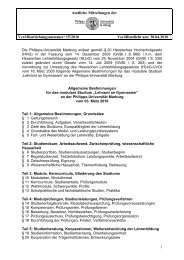- Page 3 and 4: TRIAL THE MAJOR WAR CRIMINALS BEFOR
- Page 5 and 6: VOLUME XIV OFFICIAL TEXT IN THE ENG
- Page 7 and 8: ONE HUNDRED AND THIRTY-FIRST DAY Th
- Page 9 and 10: 16 May 46 THE PRESIDENT: Dr. Siemer
- Page 11 and 12: 16 May 46 articles were better equi
- Page 13 and 14: 18 May 46 impossible to compile so
- Page 15 and 16: 16 Mav 46 of aircraft to tow the ne
- Page 17 and 18: 16 May 46 that the interpreter has
- Page 19 and 20: 16 May 46 to sanction a new 28-cent
- Page 21 and 22: DR. SIEMERS: So that this sum was n
- Page 23 and 24: 16 May 48 are dealing with Exhibit
- Page 25 and 26: ...................................
- Page 27 and 28: 16 May 46 DR. SIEMERS: Now I turn t
- Page 29 and 30: 16 May 46 He said he wanted to make
- Page 31: 16 May 46 Kingdom regard this propo
- Page 35 and 36: 16 May 46 SIR DAVID MAXWELL-FYFE (D
- Page 37 and 38: 16 May 46 Number Raeder-15, within
- Page 39 and 40: 16 May 46 Afternoon Session DR. SIE
- Page 41 and 42: 16 May 46 Now, I shall take up a ne
- Page 43 and 44: 16 May 46 that France and England w
- Page 45 and 46: , 16 May 46 on 23 May 1939 with ref
- Page 47 and 48: 16 May 46 DR. SIEMERS: Is it not of
- Page 49 and 50: ' 16 May 46 must not be left to the
- Page 51 and 52: 16 May 46 THE PRESIDENT: The Tribun
- Page 53 and 54: 16 May 46 used. I will be in a posi
- Page 55 and 56: 16 May 46 RAEDER: Yes. In my opinio
- Page 57 and 58: 16 May 46 ' Foreign Office, from th
- Page 59 and 60: 16 May 46 in this document means Fr
- Page 61 and 62: 16 May 46 is that the aim of the Re
- Page 63 and 64: 16 May 46 irrelevant just because a
- Page 65 and 66: 16 May 46 Sir David made certain fu
- Page 67 and 68: 16 May 46 quoted in this document,
- Page 69 and 70: 16 May 46 which is carried on in ev
- Page 71 and 72: 17 May 46 MR. DODD: Mr. President,
- Page 73 and 74: M. DUBOST: Very good. Mr. President
- Page 75 and 76: 17 May 46 DR. SIEMERS: We have hear
- Page 77 and 78: Chief of State and Supreme Commande
- Page 79 and 80: 17 May 46 Document Book Raeder Numb
- Page 81 and 82: 17 May 46 RAEDER: Shortly before th
- Page 83 and 84:
17 May 46 !Turning to the defendant
- Page 85 and 86:
17 May 46 after some time, that is
- Page 87 and 88:
17 May 46 the officer. I also repor
- Page 89 and 90:
17 May 46 Afternoon Session DR. SIE
- Page 91 and 92:
vessels to British companies"-and s
- Page 93 and 94:
17 May 46 I recall that after repor
- Page 95 and 96:
11 May 46 time' it has been correct
- Page 97 and 98:
thoughts in connection with this ma
- Page 99 and 100:
17 May 46 RAEDER: As far as, I reme
- Page 101 and 102:
11 May 46 dated 13 December 1939, w
- Page 103 and 104:
17 May 46 DR. SIEMERS: You said jus
- Page 105 and 106:
17 May 46 RAEDER: May I also mentio
- Page 107 and 108:
17 May 46 reason for his action, ha
- Page 109 and 110:
17 May 46 time in 1942, used all hi
- Page 111 and 112:
17 May 46 that in all clarity in th
- Page 113 and 114:
17 May 46 mines and light naval for
- Page 115 and 116:
18 May 16 seems to us that the Trib
- Page 117 and 118:
18 May 46 Number 68 is the first do
- Page 119 and 120:
18 May 46 The next document is Poin
- Page 121 and 122:
IS May 46 ' a signature of these tw
- Page 123 and 124:
18 May 46 fleet). Japan is, indeed,
- Page 125 and 126:
18 May 46 DR. SIEMERS: No, not up u
- Page 127 and 128:
13 May 46 DR. SIEMERS: May it pleas
- Page 129 and 130:
18 May 46 "Army Foresaw Japan's Mov
- Page 131 and 132:
18 May 46 16 June, had been submitt
- Page 133 and 134:
18 May 46 Keitel I made a report to
- Page 135 and 136:
18 May 46 many destroyers, the admi
- Page 137 and 138:
18 May 46 RAEDER: Since the war aga
- Page 139 and 140:
18 May 46 FLOTTENRICHTER KRANZB~HLE
- Page 141 and 142:
18 May 46 DR. NELTE: You heard what
- Page 143 and 144:
18 May 46 RAEDER: In no way whatsoe
- Page 145 and 146:
18 May 46 DR. LATERNSER: Concerning
- Page 147 and 148:
I 18 May 46 tremendous campaign in
- Page 149 and 150:
18 May 46 place in Czechoslovakia,
- Page 151 and 152:
20 May 46 DR. HORN: In 1941 the Ame
- Page 153 and 154:
20 May 46 was in Kiel, and there we
- Page 155 and 156:
20 May 46 f not interfere in any wa
- Page 157 and 158:
20 May 46 RAEDER: No, they took pla
- Page 159 and 160:
nothing to do with me because I had
- Page 161 and 162:
2D May 46 which permitted the const
- Page 163 and 164:
50 May 46 Are you saying that Admir
- Page 165 and 166:
DR. SIEMERS: Mr. President, I am pe
- Page 167 and 168:
20 May 46 SIR DAVID MAXWELL-FYFE: D
- Page 169 and 170:
20 May 46 colonial possessions, but
- Page 171 and 172:
20 May 46 to be small-minded about
- Page 173 and 174:
20 May 46 SIR DAVID MAXWELL-FYFE: I
- Page 175 and 176:
20 May 46 [Turning to the defendant
- Page 177 and 178:
20 May 46 "The military and politic
- Page 179 and 180:
20 May 46 of the Sudetenland. We we
- Page 181 and 182:
20 May 46 RAEDER: He asked me, and
- Page 183 and 184:
20 May 46 Austria, the ones describ
- Page 185 and 186:
20 May 46 the Slav part of Bohemia
- Page 187 and 188:
20 May 46 of blood," you paid no at
- Page 189 and 190:
20 May 46 RAEDER: Yes, it is the co
- Page 191 and 192:
20 May 46 RAEDER: I know that this
- Page 193 and 194:
20 May 46 "I. Possibility: The deci
- Page 195 and 196:
20 May 46 RAEDER: May I have Docume
- Page 197 and 198:
20 May 46 RAEDER: I only submitted
- Page 199 and 200:
28 May 46 "The firm intention of No
- Page 201 and 202:
. 20 May 46 then I am finished with
- Page 203 and 204:
20 May 46 impression that Russian s
- Page 205 and 206:
20 May 46 gives us a justification
- Page 207 and 208:
20 May 46 The first step, therefore
- Page 209 and 210:
ao May 46 Europe had been turned do
- Page 211 and 212:
20 May 46 Likewise, the United Stat
- Page 213 and 214:
20 May 46 neutral had raised a fing
- Page 215 and 216:
2b May 46 it seems perfectly possib
- Page 217 and 218:
20 May 46 SIR DAVID MAXWELL-FYFE: T
- Page 219 and 220:
"The Jewish population of Libau at
- Page 221 and 222:
20 May 46 RAEDER: I did not recomme
- Page 223 and 224:
SIR DAVID MAXWELL-FYFE: Well, do yo
- Page 225 and 226:
20 May 46 RAEDER: I always made ser
- Page 227 and 228:
20 May 46 that the Navy would not s
- Page 229 and 230:
' RAEDER: No, they were two quite d
- Page 231 and 232:
20 May 413 be spared. The Fiihrer h
- Page 233 and 234:
20 May 46 RAEDER: But there is some
- Page 235 and 236:
ONE HUNDRED AND THIRTY-FIFTH DAY Tu
- Page 237 and 238:
21 May 46 in him, that in your opin
- Page 239 and 240:
21 May 46 RAEDER: Yes, that was on
- Page 241 and 242:
21 May 46 I now come to Document C-
- Page 243 and 244:
21 May 46 quite clear, I want you t
- Page 245 and 246:
21 May 46 RAEDER: Yes, I forgot the
- Page 247 and 248:
21 May 46 Lord, it is a well-known
- Page 249 and 250:
21 May 46 RAEDER: Yes. I have the d
- Page 251 and 252:
21 May 46 DR. SIEMERS: I agree, Mr.
- Page 253 and 254:
21 May 46 RAEDER: Actually I was nw
- Page 255 and 256:
21 May 46 SEVERING: May I continue?
- Page 257 and 258:
21 May 46 Is that extract from '%he
- Page 259 and 260:
21 May 46 they did everything withi
- Page 261 and 262:
21 May 46 there had been misreprese
- Page 263 and 264:
' 21 May 46 DR. SIEMERS: They assur
- Page 265 and 266:
21 May 46 discussiotns. Since Stres
- Page 267 and 268:
21 May 46 DR. SIEMERS: Yes, I shoul
- Page 269 and 270:
21 May 46 a page or so, each of the
- Page 271 and 272:
21 May 46 the National Socialist te
- Page 273 and 274:
21 May 46 SEVERING: He was arrested
- Page 275 and 276:
11 May 46 DR. HAENSEL: Do you belie
- Page 277 and 278:
21 May 46 SEVERING: I have already
- Page 279 and 280:
21 May 46 The Defendant Goring hass
- Page 281 and 282:
21 May 46 SEVERING: If the matter i
- Page 283 and 284:
21 May 46 for the emergency decree
- Page 285 and 286:
21 May 46 DR. SIEMERS: In connectio
- Page 287 and 288:
THE PRESIDENT: That is a perfectly
- Page 289 and 290:
21 May 46 the other hand, I do know
- Page 291 and 292:
21 May 46 which you have already pr
- Page 293 and 294:
21 May 46 DR. SEIDL: Is it true tha
- Page 295 and 296:
22 May 46 VON WEIZSbCKER: I never n
- Page 297 and 298:
22 May 46 DR. VON LUDINGHAUSEN: Wha
- Page 299 and 300:
22 May 46 DR. LATERNSER: Yes, the f
- Page 301 and 302:
22 May 46 that is a report from Neu
- Page 303 and 304:
22 May 46 MAJOR JONES: Already in A
- Page 305 and 306:
22 May 46 THE PRESIDENT: Do you wan
- Page 307 and 308:
22 May 46 I should like to ask you
- Page 309 and 310:
Hitler said to Raeder that the basi
- Page 311 and 312:
22 May 46 . DR. SIEMERS: Mr. Presid
- Page 313 and 314:
22 May 46 I through Admiral Raeder'
- Page 315 and 316:
22 May 46 DR. SIEMERS: I now come t
- Page 317 and 318:
22 May 46 DR. SIEMERS: No political
- Page 319 and 320:
22 May 46 1 SCHULTE-MONTING: To tha
- Page 321 and 322:
22 May 46 SCHULTE-MONTING: In the b
- Page 323 and 324:
as Raeder knew, was not the case in
- Page 325 and 326:
22 May 46 . , THE PRESIDENT: You ca
- Page 327 and 328:
22 May 46 - Afternoon Session DR. S
- Page 329 and 330:
22 May 46 sent by the Naval Operati
- Page 331 and 332:
22 May 46 DR. SIEMERS: And the case
- Page 333 and 334:
22 May 46 did not know. We also had
- Page 335 and 336:
22 May 48 required that in any even
- Page 337 and 338:
22 May 46 for war he saw a means of
- Page 339 and 340:
22 May 46 Now, I suggest to you tha
- Page 341 and 342:
22 May 46 information about that be
- Page 343 and 344:
' "1800 hours. The naval attach6 ex
- Page 345 and 346:
22 May 46 delegate, Oshima, who was
- Page 347 and 348:
22 May 46 SCHULTE-M~NTING: That is
- Page 349 and 350:
to you from the document by Assmann
- Page 351 and 352:
' 22 May 46 to the necessity of acq
- Page 353 and 354:
22 May 46 DR. SIEMERS: Yes; or Raed
- Page 355 and 356:
a.n extract from the original was i
- Page 357 and 358:
22 May 46 Did these soldiers behave
- Page 359 and 360:
22 May 46 intended to wage aggressi
- Page 361 and 362:
22 May 46 who as a Jew had been acc
- Page 363 and 364:
22 May 46 time we also discussed th
- Page 365 and 366:
"I was quite sure that they were Fr
- Page 367 and 368:
23 May 46 Von Schnieden as a witnes
- Page 369 and 370:
23 May 46 which was combined with t
- Page 371 and 372:
23 May 46 the importance of Goethe
- Page 373 and 374:
23 May 46 DR. SAUTER: Witness, I th
- Page 375 and 376:
23 May 46 VON SCHIRACH: Of course,
- Page 377 and 378:
23 May 46 VON SCHIRACH: Yes, I then
- Page 379 and 380:
23 May 46 me how it came about that
- Page 381 and 382:
23 May 4G DR. SAUTER: The Prosecuti
- Page 383 and 384:
' 23 May 46 VON SCHIRACH: Yes, that
- Page 385 and 386:
23 May 46 VON SCHIMCH: I have state
- Page 387 and 388:
23 May 46 criticism was heard on ac
- Page 389 and 390:
23 May 46 VON SCHIRACH: It was in J
- Page 391 and 392:
23 May 46 DR. SAUTER: The Navy HJ,
- Page 393 and 394:
23 May 46 Afternoon Session i [The
- Page 395 and 396:
May 46 in Mussolini's attitude. I w
- Page 397 and 398:
23 May 46 my duties in that organiz
- Page 399 and 400:
23 May 46 VON SCHIRACH: Yes, that i
- Page 401 and 402:
23 May 46 VON SCHIRACH: May I remin
- Page 403 and 404:
23 May 46 VON SCHIRACH: Yes, that w
- Page 405 and 406:
23 May 46 to the Tribunal, judicial
- Page 407 and 408:
23 May 46 DR. SAUTER: The year of "
- Page 409 and 410:
- 28 May 4fi DR. SAUTER: Witness, y
- Page 411 and 412:
23 May 46 DR. SAUTER: Thus, Mr. Pre
- Page 413 and 414:
youth had been incorporated on the
- Page 415 and 416:
23 May 46 make it just as clear tha
- Page 417 and 418:
23 May 46 go to Vienna as the succe
- Page 419 and 420:
* 23 May 46 DR. SAUTER: Witness, it
- Page 421 and 422:
23 May 46 DR. SAUTER: Witness, what
- Page 423 and 424:
28 May 46 ' DR. SAUTER: Witness, in
- Page 425 and 426:
ONE HUNDRED AND THIRTY-EIGHTH DAY F
- Page 427 and 428:
24 May 46 VON SCHIRACH: I had no pa
- Page 429 and 430:
24 May 46 DR. SAUTER: Consequently
- Page 431 and 432:
24 May 46 me. I thought that the Je
- Page 433 and 434:
24 May 46 DR. SAUTER: Did the SS, w
- Page 435 and 436:
24 May 46 alternative, either to en
- Page 437 and 438:
24 May 46 here that he was present
- Page 439 and 440:
24 May 46 this with developments on
- Page 441 and 442:
24 May 46 DR. SAUTER: Mr. President
- Page 443 and 444:
24 May 46 VON SCHIRACH: I witnessed
- Page 445 and 446:
24 May 46 the internees in the camp
- Page 447 and 448:
24 May 46 "I want the Jews now empl
- Page 449 and 450:
24 May 46 And because of this incid
- Page 451 and 452:
24 May 46 THE PRESIDENT: We have he
- Page 453 and 454:
24 May '46 VON SCHIRACH: That is tr
- Page 455 and 456:
24 May 46 executed in the military
- Page 457 and 458:
24 May 46 Afternoon ~essio; DR. SER
- Page 459 and 460:
24 May 46 DR. STEINBAUER: Good. Are
- Page 461 and 462:
24 May 46 VON SCHIRACH: I considwed
- Page 463 and 464:
VON SCHIRACH: I would not like to s
- Page 465 and 466:
24 May 46 MR: DODD: But you don't k
- Page 467 and 468:
24 May 46 MR. DODD: Well, words, li
- Page 469 and 470:
24 May 46 VON SCHIRACH: That I do n
- Page 471 and 472:
24 May 46 VON SCHIRACH: I described
- Page 473 and 474:
24 May 46 your text. In the last pa
- Page 475 and 476:
24 May 46 .we will pass along. You
- Page 477 and 478:
24 May 46 MR.DODD: All right. Now,
- Page 479 and 480:
24 May 46 MR. DODD: Well, then I ha
- Page 481 and 482:
24 May 46 , MR. DODD: Well, I thoug
- Page 483 and 484:
24 May 46 therefore ask my counsel
- Page 485 and 486:
24 May 46 attitudes of young people
- Page 487 and 488:
24 May 46 Did you ever see one of t
- Page 489 and 490:
I just want to know if you are awar
- Page 491 and 492:
24 May 46 Now, he enclosed a commun
- Page 493 and 494:
24 May 46 MR. DODD: How long did yo
- Page 495 and 496:
24 May 46, I VON SCHIRACH: I do not
- Page 497 and 498:
24 May 46 and who was one of many o
- Page 499 and 500:
24 May 46 "The enemy powers and the
- Page 501 and 502:
ONE HUNDRED AND THIRTY-NINTHDAY Mon
- Page 503 and 504:
27 May 46 the Czech emigrants in Lo
- Page 505 and 506:
27 May 46 VON SCHIRACH: I have no e
- Page 507 and 508:
27 May 46 direction &and administra
- Page 509 and 510:
' 27 May 46 were extremely well acc
- Page 511 and 512:
27 May 46 on 20 July 1944. You will
- Page 513 and 514:
27 May 46 MR. DODD: Yes, Your Honor
- Page 515 and 516:
27 May 46 were given in Germany. Ap
- Page 517 and 518:
this during my owni testimony the o
- Page 519 and 520:
VON SCHIRACH: In Poland? MR. DODD:
- Page 521 and 522:
27 May 46 subject of this policy in
- Page 523 and 524:
27 May 46 VON SCHIRACH: Because the
- Page 525 and 526:
27 May 46 personification .of truth
- Page 527 and 528:
21 May 46 the times of the Indians
- Page 529 and 530:
27 May 46 GEN. ALEXANDROV: I am onl
- Page 531 and 532:
27 May 46 VON SCHIRACH: I know that
- Page 533 and 534:
27 May 46 of the younger generation
- Page 535 and 536:
27 May 46 sufficient children had b
- Page 537 and 538:
27 May 46 Colonel Karev. This is no
- Page 539 and 540:
21 May 46 Tribunal and had been see
- Page 541 and 542:
n May 46 VON SCHIRACH: Yes, I have
- Page 543 and 544:
This is a Christian song. DR. SAUTE
- Page 545 and 546:
27 May 46 [The witness Lauterbacher
- Page 547 and 548:
27 May 46 LAUTERBACYER: Yes. DR. SA
- Page 549 and 550:
27 May 46 who had served their term
- Page 551 and 552:
27 May 46 9 November 1938, on the s
- Page 553 and 554:
21 May 46 the Church or not. I left
- Page 555 and 556:
27 May 46 in your residence in Berl
- Page 557 and 558:
27 May 46 little importance and the
- Page 559 and 560:
27 May 46 found conditions in forei
- Page 561 and 562:
21 May 46 LAUTERBACHER: I was made
- Page 563 and 564:
'27 May 46 MR. DODD: Did you order
- Page 565 and 566:
27 May 46 he passed orders on but t
- Page 567 and 568:
27 May 46 LAUTERBACHER: A calendar
- Page 569 and 570:
27 May 46 MR. DODD: Did Heydrich ev
- Page 571 and 572:
n May 46 DR. SAUTER: Were you an of
- Page 573 and 574:
n May 46 DR. SAUTER: Who, Schirach?
- Page 575 and 576:
28 May 46 DR. BERGOLD: Your Lordshi
- Page 577 and 578:
28 May 46 THE PRESIDENT: Are there
- Page 579 and 580:
28 May 46 HOEPlWN: I know that it w
- Page 581 and 582:
28 May 46 HOEPKEN: Not all of his m
- Page 583 and 584:
28 May 46 on these. It says here, a
- Page 585 and 586:
28 May 46 HOEPKEN: Yes. He was SS ~
- Page 587 and 588:
28 May 46 THE PRESIDENT: Dr. Sauter
- Page 589 and 590:
28 May 46 MR. DODD: I did not ask y
- Page 591 and 592:
28 May 40 MR. DODD: Number USA-865.
- Page 593 and 594:
28 May 46 ,DR. SAUTER: Were you a m
- Page 595 and 596:
28 May 46 WIESHOFER: I talked to He
- Page 597 and 598:
28 May 46 DR. SERVATIUS: Yes. WIESH
- Page 599 and 600:
28 May 46 WIESHOFER: From the begin
- Page 601 and 602:
MR. DODD: You do not know anything
- Page 603 and 604:
28 May 46 THE TRIBUNAL (Mr. Biddle)
- Page 605 and 606:
28 May 46 WIESHOFER: Reports from u
- Page 607 and 608:
28 May 46 THE PRESIDENT: Dr. Sauter
- Page 609 and 610:
28 May 46 Then, Mr. President, a mo
- Page 611 and 612:
28 May 4fi DR. SERVATIUS: Did you r
- Page 613 and 614:
28 May 46 DR. SERVATIUS: When did y
- Page 615 and 616:
28 May 46 In 1933 you also became R
- Page 617 and 618:
28 May 46 SAUCKEL: My connection wi
- Page 619 and 620:
28 May 46 proud of the fact that ma
- Page 621 and 622:
28 May 46 As I had no authority ove
- Page 623 and 624:
28 May 46 DR. SERVATIUS: My questio
- Page 625 and 626:
28 May 46 The number of men needed
- Page 627 and 628:
at? May 46 Party agencies and econo
- Page 629 and 630:
28 May 46 DR. SERVATIUS: One moment
- Page 631 and 632:
28 May 46 So you considered it just
- Page 633 and 634:
28 May 46 SAUCKEL: I finally receiv
- Page 635 and 636:
28 May 46 SAUCKEC: The authority I
- Page 637 and 638:
28 May 46 DR. SERVATIUS: Did you ha
- Page 639 and 640:
28 Mag 46 managers and all the othe



